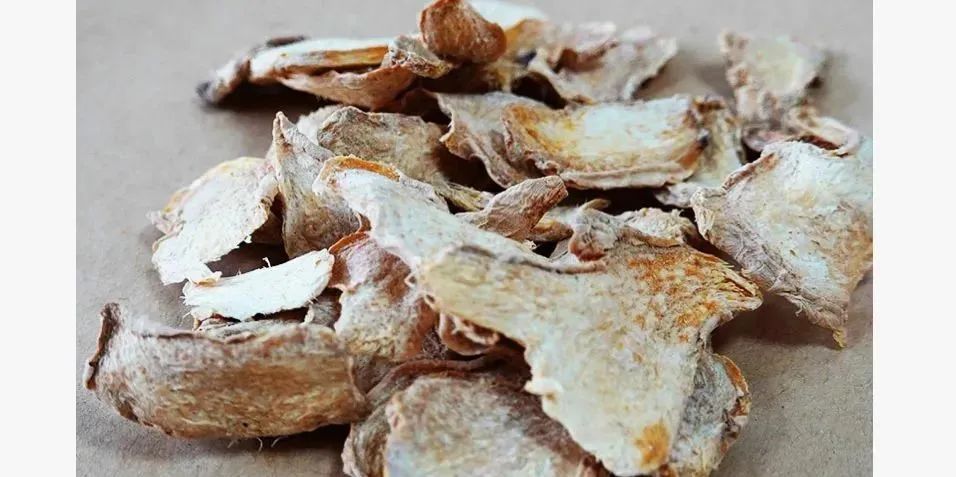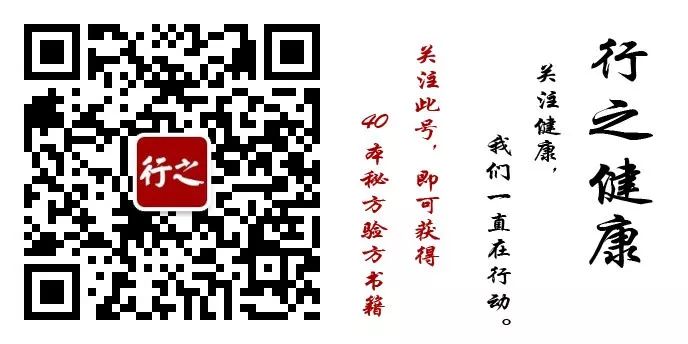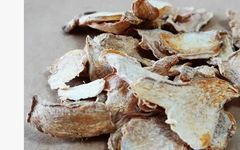Dried Ginger ApplicationsAuthor: Xu Gongyan
Introduction:XU Gongyan (1903–1994) was a modern TCM practitioner from Kaifeng, Henan Province. He obtained his medical license in 1922 and practiced in Kaifeng, Luoyang, and Xi’an. He moved to Beijing in 1948 and began teaching at Beijing University of Chinese Medicine in 1952, later working at Beijing TCM Hospital in 1956.
Dried ginger, the dried form of mature ginger, is a commonly used spice with a strong pungent flavor and a hot nature, making it an effective remedy for warming the middle and dispelling cold.

Ancient practitioners recognized it as a good medicine for treating spleen and stomach deficiency cold. Symptoms such as poor appetite, abdominal cold pain, gastric cold with vomiting and diarrhea, cold limbs with weak pulse, and the desire for yang qi to escape, or lung qi deficiency cold with clear and thin phlegm, or qi deficiency with cold leading to vomiting blood, as well as wind-cold-damp bi syndrome with cold limbs and pain, all indicate that when yang qi is insufficient due to spleen dysfunction, it is essential to vigorously warm the middle and restore the spleen. The primary remedy should be dried ginger, which is pungent and hot, to warm and tonify the spleen, enhancing its heat to promote qi movement and dispel cold, thus alleviating cold limbs and bi syndrome.
Zhongjing had extensive experience using dried ginger, with 72 formulas containing it in his works, “Shang Han Lun” and “Jin Kui Yao Lue,” such as Da Jian Zhong Tang, Xiao Qing Long Tang, and Si Ni Tang. Although each formula has its specific indications, the intention behind using dried ginger is to address water retention and qi stagnation caused by spleen qi deficiency cold.
Chen Xiuyuan from the Qing Dynasty believed that dried ginger could treat various diseases because it is warm but not harsh, pungent but not extreme, making it a vital medicine for cold in the organs. He further explained the rationale behind its clinical use:
“The chest corresponds to the lungs; if the lungs are cold, the metal loses its descending nature, causing qi to stagnate in the chest and fullness, leading to cough and reverse qi symptoms. The remedy for this is pungent dispersing and warming. The middle corresponds to earth; if the earth is deficient, it becomes cold, and this can warm it; bleeding occurs due to yang deficiency and yin must escape; warmth will return the blood to its proper channels; sweating occurs because pungent warmth can disperse; expelling wind-damp bi syndrome treats cold pathogens lingering in the muscles and bones; treating diarrhea and dysentery removes cold pathogens trapped in the stomach and intestines. All these treatments utilize its strong and vigorous properties.”
From the above analysis, it is clear that he had a profound understanding of dried ginger. The so-called lung cold and qi stagnation, yang deficiency and yin escape, cold lingering in the muscles and bones, and cold pathogens trapped in the intestines are all pathological conditions that require dried ginger to warm the spleen and invigorate yang, which is a significant method.
The strength of the body’s qi reflects the condition of spleen qi. When it is strong, qi transforms and water flows; when it is weak, qi stagnates and water accumulates. Although the manifestations of these conditions are numerous, they all stem from the singular pathology of lost middle yang. It should be understood that if spleen yang does not distribute, the blockages throughout the body cannot be limited to one area but will affect all organs.
The formation of specific clinical symptoms varies in the spleen, lungs, and qi-blood. This further illustrates that spleen qi deficiency cold is a problem of overall qi insufficiency. Therefore, Huang Gongxiu from the Qing Dynasty pointed out:
“Using Bai Zhu (Atractylodes) to dry dampness and tonify the spleen, using Wu Wei Zi (Schisandra) to promote lung qi and treat cold, and using Dang Gui (Angelica) and Bai Shao (White Peony) to enter qi and generate blood. Any condition caused by cold pathogens entering the interior leading to stubbornness in the organs, joint obstruction, meridian blockage, cold bi, cold diseases, or reverse stomach should all be rescued by these methods.”
In summary, although the disease may be due to spleen deficiency and poor movement, when the body’s qi is weak and not utilized, dried ginger’s pungent warmth and strong properties must be employed for treatment. Over the years, I have summarized four uses of dried ginger in clinical practice, all aimed at warming the spleen and restoring movement.1. Warming the SpleenFor symptoms caused by spleen qi deficiency cold, such as poor appetite, loose stools, clear urination, cold limbs, fatigue, pale tongue, and weak pulse, use 30-60g of dried ginger, 60g of licorice, 15g of raw astragalus, and 10g of bulbus of Cimicifuga, to warm the middle and benefit qi, achieving satisfactory results.Example 1Wang, male, 40 years old.Chief complaint:Chronic diarrhea, reduced appetite, abdominal distension, and frequent use of both Western and Chinese anti-diarrheal medications with no improvement. His tongue was pale and thin, and his pulse was deep and weak.Diagnosis:Middle yang deficiency.Treatment method:Warm the spleen and benefit qi.Prescription:Dried ginger 60g, raw astragalus 15g, bulbus of Cimicifuga 10g.After taking 5 doses, appetite increased, and although diarrhea persisted, it reduced to once a day. Continuing the formula for over a month, all symptoms were cured.2. Nourishing the LungsFor chronic cough, shortness of breath, clear and thin or white sticky phlegm, no thirst, reduced appetite, abdominal distension after eating, constipation or loose stools, clear and frequent urination, pale and swollen tongue, wet and greasy or thin white coating, or thick greasy coating, and deep slippery or weak pulse.Whether one has a preference for tea and alcohol or has a history of tuberculosis, if it is due to spleen and lung deficiency, treatment should warm the middle, using the modified Gan Cao Gan Jiang Tang from the “Jin Kui.”
- Example 2
Zhang, male, 55 years old.Chief complaint:Chronic bronchitis and emphysema, excessive thirst, and a history of tuberculosis, with abundant phlegm, a sound like sawing in the throat, reduced appetite, frequent loose stools, and a thin and pale tongue with little red, and a pulse that is thin, slippery, and slightly rapid.Diagnosis:Spleen and lung deficiency.Treatment method::Strengthen the spleen and nourish the lungs.Prescription:Dried ginger 30g, raw licorice 60g, white mustard seed 24g.After taking 7 doses, all symptoms improved. After continuous use for six months, he gradually recovered.3. Strengthening the HeartThe heart’s strength originates from spleen qi, which is the origin of the saying, “the spleen is the root of postnatal life.” Therefore, for symptoms such as chest tightness, shortness of breath, palpitations, and fatigue due to weakened or insufficient heart qi, as long as the tongue is pale and not red, and the pulse is thin and weak or moving, treatment should focus on strengthening the heart and benefiting qi, with dried ginger as the main ingredient.
- Example 3
Liu, female, 60 years old.Chief complaint:Sudden fainting in 1973, although she regained consciousness after a while, she remained short of breath and fatigued, with generalized edema, especially in the chest and abdomen, feeling hard and unable to sit or lie down comfortably, with no appetite, and if she forced herself to eat, she would vomit. Her tongue was pale and dark, with a thin greasy coating, and her pulse was thin, slippery, and submerged. Western medicine diagnosed her with heart failure.Diagnosis:Heart and spleen deficiency cold.Treatment method:Tonify the heart and spleen.Prescription:Wufeng Pian 15g, raw coix seed 12g, dried ginger 30g, raw licorice 30g.After taking the medicine for over a month, she felt the chest tightness and abdominal distension dissipate, qi movement gradually improved, appetite returned, and bowel movements became normal, but the edema did not subside, so 3g of ephedra was added to the previous formula, and after 3 doses, the edema completely resolved.4. Stopping BleedingAs ancient practitioners said, the spleen can control blood, meaning that sufficient spleen qi can regulate blood circulation. Although it can also be said that blood may flow abnormally, it is essential to differentiate this from blood being forced out by heat, especially through careful examination of the tongue and pulse. If bleeding occurs due to spleen qi deficiency cold, the tongue is often pale, the coating is wet and greasy or smooth, the pulse is thin and slippery or slightly wiry or not wiry, with abdominal distension and a desire to vomit, constipation or loose stools being particularly necessary accompanying symptoms. In such cases, the treatment should warm the middle, benefit qi, and restore the spleen.
- Example 4
Peng, male, 58 years old.Chief complaint:In winter 1959, he experienced a severe nosebleed lasting three days, with no effect from various hemostatic medications, pale complexion, pale tongue without coating, and a thin and slippery pulse.Diagnosis:Spleen deficiency cold dampness, causing blood to escape from the vessels.Treatment method:Warm the spleen and benefit qi.Prescription:Dried ginger 15g, raw licorice 30g, raw astragalus 12g, and 3g of oil cinnamon bark.After taking one dose, the bleeding stopped, and after three doses, he was cured. Regardless of whether the disease is located in the spleen, lungs, or even the heart, any pathological changes caused by insufficient righteous qi that require warming the middle and benefiting qi must primarily use dried ginger.However, it is also essential to pair it with a substantial amount of licorice to enhance its effects; otherwise, if yang has not yet recovered and agitation increases, it will be challenging to control the condition. It should be noted that dried ginger has a strong warming power, but if qi is insufficient, it will not be effective. When the spleen is deficient, both qi and yang are lacking, and dual supplementation is the only measure at this time. Moreover, the combination of pungent and sweet is necessary to transform into yang, which must be emphasized.
Regardless of whether the disease is located in the spleen, lungs, or even the heart, any pathological changes caused by insufficient righteous qi that require warming the middle and benefiting qi must primarily use dried ginger.However, it is also essential to pair it with a substantial amount of licorice to enhance its effects; otherwise, if yang has not yet recovered and agitation increases, it will be challenging to control the condition. It should be noted that dried ginger has a strong warming power, but if qi is insufficient, it will not be effective. When the spleen is deficient, both qi and yang are lacking, and dual supplementation is the only measure at this time. Moreover, the combination of pungent and sweet is necessary to transform into yang, which must be emphasized.


